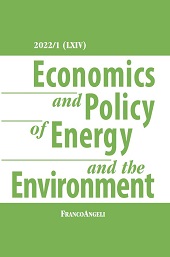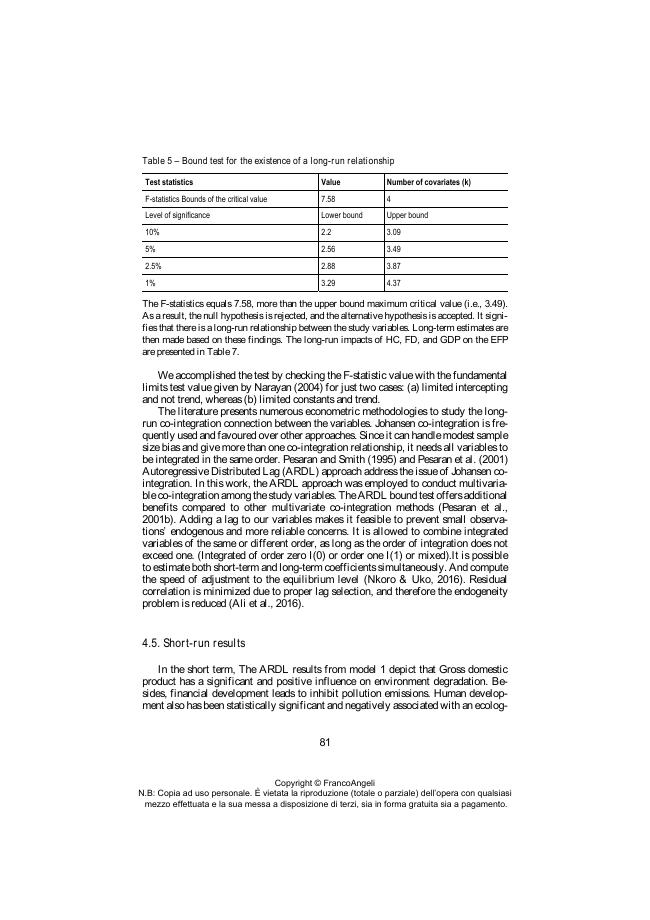The joint effect of financial development and human capital on the ecological footprint : the Algerian case
P. 69-93
This study aims to figure out what factors influence environmental degradation as measured by the ecological footprint in Algeria. It examines the impact of financial development (access to credit), human capital (education), and economic growth on Algeria's environmental deg- radation in the short and long term. For this purpose, the current study examines short- and long-term consequences using a 37 years time series of secondary data and applies the autoregressive distributed lag time-series model.
Our findings show that economic growth has a considerable positive impact on the ecological footprint in both the long and short term. Both access to credit and education have a negative effect on environmental degradation. This suggests that access to credit and education are both negative short and longterm derivatives of the ecological footprint in Algeria, whereas economic growth is a positive short and longterm indicator.
Furthermore, bidirectional causality is discovered between access to credit and ecological footprint, while the granger causality method discloses unidirectional causality from economic growth to the ecological footprint. Education also Granger-causes ecological footprint without any feedback. The current research has significant consequences since it will assist Algerian policymakers in controlling environmental deterioration through improved regulations. The findings inspire Algerian authorities to encourage the human resource to adopt green development through proper education programmes. Additionally, investors should be encouraged to finance environmentally friendly, sustainable projects. Furthermore, in Algeria, the government should reduce pollution from production by implementing green technologies. And participate in an international development track that is focused on longterm sustainability. [Publisher's text]
Forma parte de
Economics and Policy of Energy and Environment : 1, 2022-
Artículos del mismo número (disponibles individualmente)
-
Información
Código DOI: 10.3280/EFE2022-001005
ISSN: 2280-7667
KEYWORDS
- Financial development, human capital, ecological footprint, economic growth, Algeria



